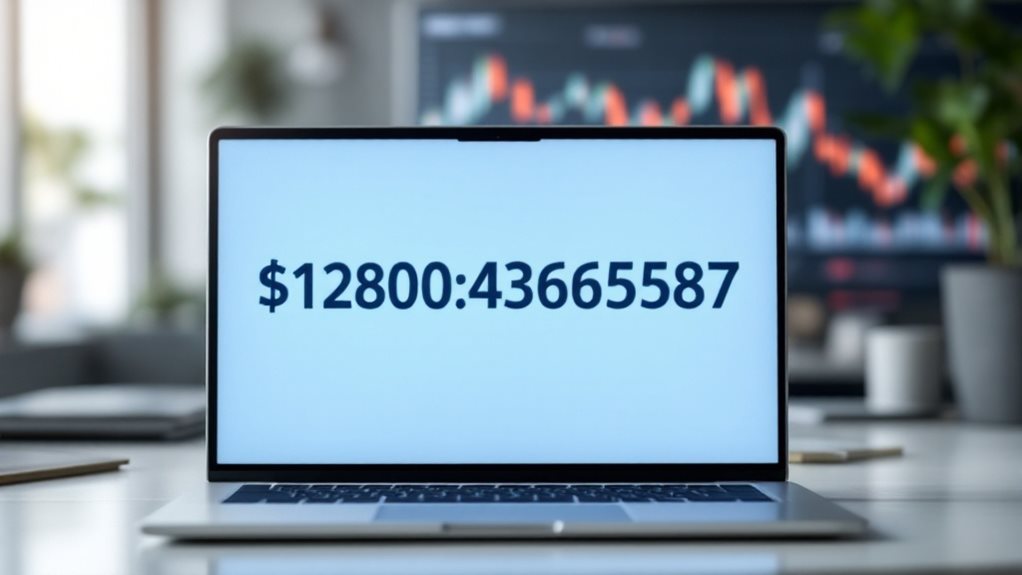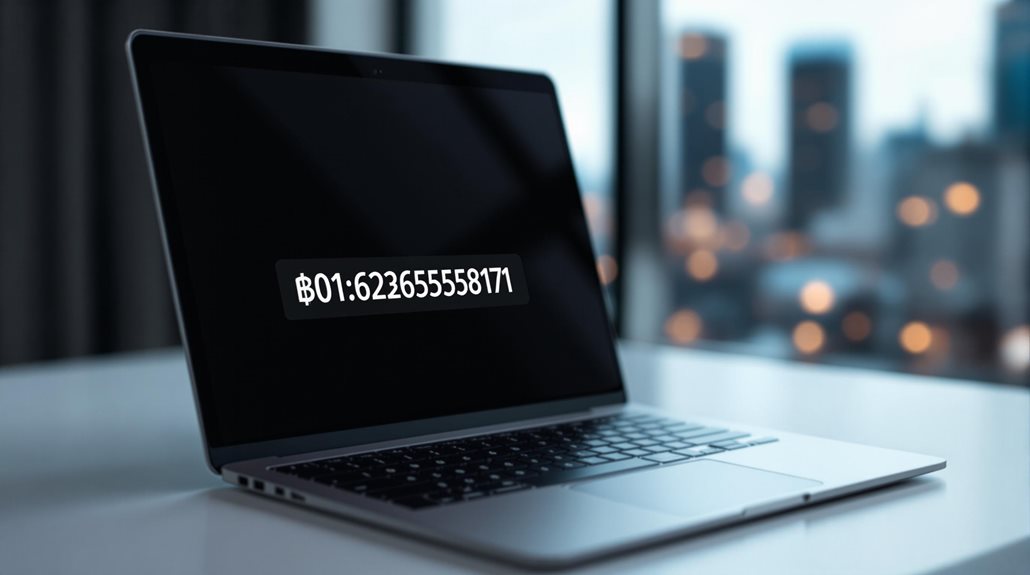A Bitcoin address is like a digital mailbox for receiving cryptocurrency. It's made up of 26-35 characters and works similarly to an email address but for Bitcoin transactions. Each address contains a unique code that helps direct money transfers securely and privately. Users can create multiple addresses through digital wallets, with different types serving various transaction needs. Understanding Bitcoin addresses opens the door to cryptocurrency basics.

A Bitcoin address is like a digital mailbox where someone can receive cryptocurrency. It's a unique string of 26-35 characters that serves as the destination for Bitcoin transactions. These addresses work similarly to email addresses but are specifically designed for sending and receiving Bitcoin. They're made up of letters and numbers and provide a secure way to handle cryptocurrency transfers. The pseudonymous nature of these addresses helps protect user privacy while enabling transparent transactions.
Bitcoin addresses are created from a public key, which comes from a private key. They have three main parts: a prefix that shows which network it belongs to, a payload that contains important transaction data, and a checksum that makes sure there aren't any errors. It's essential to recognize that Bitcoin addresses don't actually hold any balance themselves – they're just used to direct individual transactions. The private key remains secret while the public address can be freely shared with others. Before Bitcoin addresses were implemented, transactions were sent to IP addresses, which proved vulnerable to security breaches. Users can manage their Bitcoin addresses through various wallet types, ranging from online hot wallets to secure offline cold storage solutions.
There are different types of Bitcoin addresses, each starting with specific characters. The oldest type, called legacy addresses, starts with '1' and is known as P2PKH (Pay to Public Key Hash). Another type starts with '3' and is called P2SH (Pay to Script Hash), which is used for more complex transactions and multiple signatures. The newest standard is called Bech32, which starts with 'bc1' and is optimized for a technology called SegWit.
People often use block explorers to look up information about Bitcoin addresses and see transaction histories. When someone wants to receive Bitcoin, they simply share their address with the sender. Many people use QR codes to make sharing addresses easier – instead of typing out the long string of characters, they can just scan the code with their phone or device.
A key characteristic of Bitcoin addresses is that they're designed for single-use transactions. While it's possible to use the same address multiple times, creating new addresses for each transaction is common practice. This approach helps maintain privacy on the Bitcoin network.
The address system is designed to be precise and error-resistant, which is why it includes the checksum feature that can detect if someone makes a mistake when typing an address. This helps prevent users from accidentally sending Bitcoin to incorrect addresses.
Frequently Asked Questions
Can I Change or Delete My Bitcoin Address Once It's Created?
Bitcoin addresses can't be changed or deleted from the blockchain once they're created. They're permanent parts of the transaction record.
While users can't modify existing addresses, they can easily create new ones. Most modern wallets automatically generate fresh addresses for better privacy and security.
While wallets might let users hide unused addresses from view, this doesn't remove them from the blockchain's history.
What Happens if I Accidentally Send Bitcoin to the Wrong Address?
If someone sends Bitcoin to the wrong address, there are two possible outcomes.
If it's sent to a non-existent address, most wallet software will catch the error and prevent the transaction.
However, if it's sent to a valid but incorrect address, the funds can't be retrieved unless the recipient agrees to return them.
Once a transaction is confirmed on the blockchain, it's permanent and can't be reversed.
How Many Bitcoin Addresses Can One Person Create?
There's no limit to how many Bitcoin addresses a person can create.
It's completely free and instant to generate new addresses, and it doesn't require an internet connection. Someone can make hundreds or even thousands of addresses across multiple wallets.
Most Bitcoin wallet software can create new addresses automatically.
While millions of Bitcoin addresses exist, experts estimate only about 25 million are actively used by private individuals.
Do Bitcoin Addresses Expire if They Haven't Been Used?
Bitcoin addresses don't expire, even if they haven't been used. They stay valid indefinitely as long as someone has the private key to access them.
It's like having a mailbox that never closes – it'll always be able to receive mail. While it's not recommended to reuse addresses for privacy reasons, there's no time limit on when they stop working.
The Bitcoin network keeps all addresses functional permanently.
Is It Safe to Share My Bitcoin Address Publicly?
Sharing a Bitcoin address publicly is generally safe since it's designed for that purpose.
It's like sharing an email address – people can send Bitcoin to it, but they can't access the funds inside. The address is just a string of numbers and letters that works as a destination for payments.
While it's safe to share, using unique addresses for different transactions offers better privacy.





